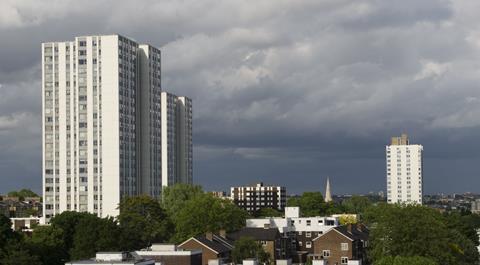New role forms key part of long-awaited social housing white paper that pledges to give tenants a voice
A beefed-up social housing regulator with new powers to inspect the properties of the UK’s biggest housing associations is at the heart of government reforms for the sector, which are laid out today.
Launching its long-awaited social housing white paper, first promised in the wake of the 2017 Grenfell Tower fire, prime minister Boris Johnson said the reforms were designed to “give social housing tenants a voice, and ensure that it is listened to”.

The paper proposes a series of reforms designed to ensure tenants’ complaints are acted upon, and that affordable housing landlords maintain homes to a proper standard.
Proposed reforms for the social housing regulator include boosting its consumer regulation role, making it responsible for driving adherence to new consumer standards and introducing routine inspections for landlords of more than 1,000 homes. It will also be made explicitly responsible for ensuring safety and transparency.
The white paper includes a new seven-point “charter” for social housing tenants, setting out what tenants have a right to expect. The charter covers issues including safety, transparency, complaint handling and housing quality.
The government said it will review the Decent Homes Standard, and consider adding local green spaces to the necessary conditions.
In addition, the government used the white paper to repeat promises to offer all social housing tenants the opportunity to buy a stake in their homes – something housing associations have said could scupper investment in new-build.
In the foreword to the white paper, Johnson said: “The idea that social tenants are less worthy of respect – or can be ignored when their views are inconvenient – remains all too prevalent today.”

Housing Secretary Robert Jenrick (pictured, right) said the government was delivering on the commitment made to the Grenfell community that, “never again, would the voices of residents go unheard”.
He said: “This white paper will bring transformational change for social housing residents, giving them a much stronger voice and, in doing so, re-focusing the sector on its social mission.
“The new approach and regulatory changes we set out in this white paper will make a measurable difference to the lived experiences of those living in England’s four million social homes in the years ahead.”
Fiona MacGregor, chief executive of the Regulator of Social Housing welcomed the paper’s publication. “We will maintain our robust approach to economic regulation and look forward to working with tenants, landlords and other stakeholders to implement the changes to the consumer regulation framework,” she added.
Kate Henderson, chief executive of the National Housing Federation, which represents housing associations, also welcomed publication of the long-awaited paper. She said: “The white paper offers much needed certainty.
“Housing associations have demonstrated willingness to be more accountable and transparent, and we believe that the white paper represents a natural progression of the work we have been doing.”











No comments yet